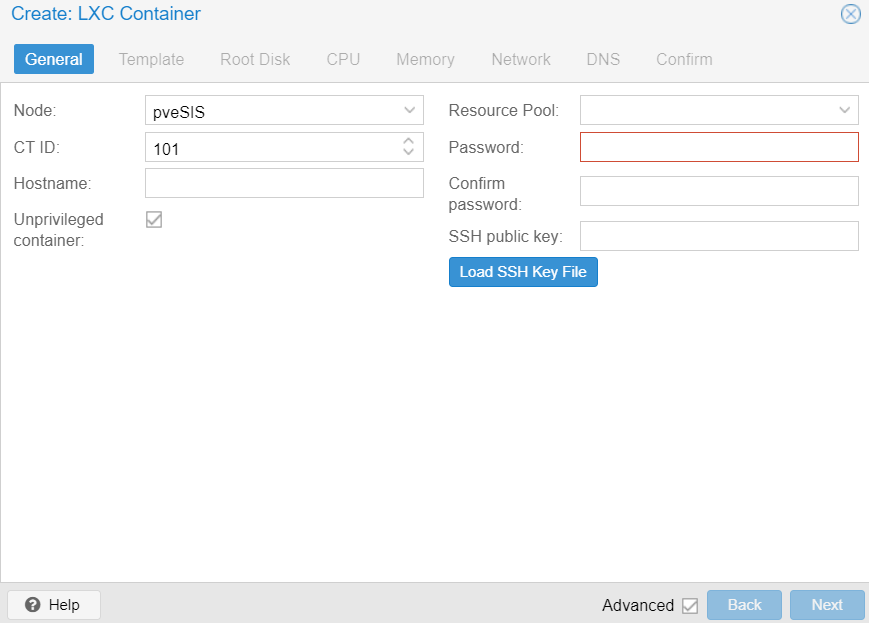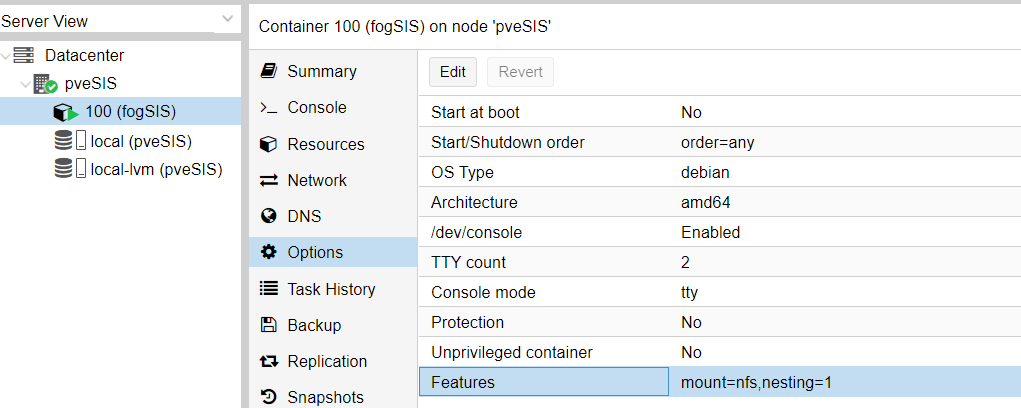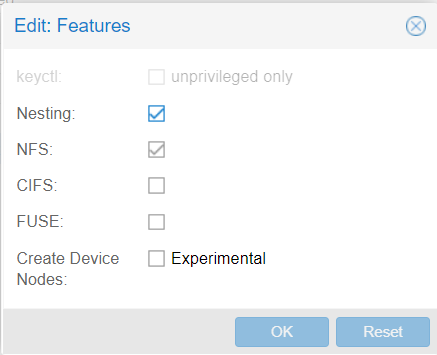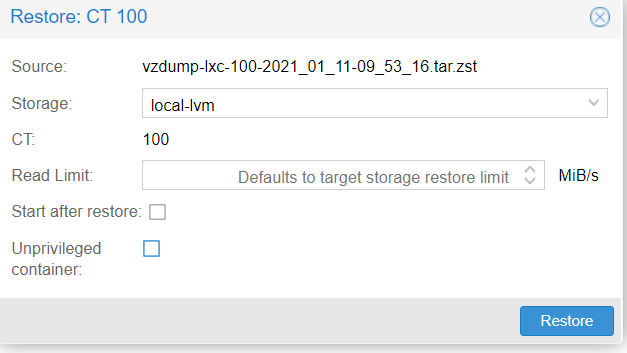Could not mount images folder /bin/fog.upload
-
@nil Just looking at the exports line the
fsid=0andfsid=1stanza missing from each line. Did you hand edit the exports file?Also you can run the
showmount -e 127.0.0.1to show the nfs exports.Also make sure the debian firewall is disabled.
-
@nil said in Could not mount images folder /bin/fog.upload:
I run Fog on a debian 10.5 with dhcpmasq in proxmox container.
Possibly Proxmox setup is causing NFS to fail.
There was a brief discussion on Proxmox containers in the forums just a few weeks ago: https://forums.fogproject.org/topic/14996/fog-on-proxmox
-
@sebastian-roth I have FOG server(s) running on proxmox on my home lab. If you use the full VM mode there is nothing you have to do FOG just works, If you use the lxc containers… I don’t know.
-
@george1421 Thanks for your answers
Yes I hand edit the exports file, i have seen that fsid=0 and fsid=1 was missing so I added it and retry the upload and it was the same result. Can it come because I edited the exports file ?
I dont have access to my server now, i will have acces Monday so i am gonna try showmount -e 127.0.0.1 but in my memory when i run showmount -e x.x.x.x
that return me a things like thatclnt_create: RPC: Program not registeredAnd also i will look to the firewall.
And maybe I will try to redo an installation on another LXC container and if it does not work I will do it on a VM… -
@nil said in Could not mount images folder /bin/fog.upload:
And maybe I will try to redo an installation on another LXC container and if it does not work I will do it on a VM…
I am fairly sure the issue comes from using LXC container… read through the forum post I mentioned earlier.
-
@sebastian-roth Sorry I missed the part about LXC container. While this is now a bit off topic, I built another FOG VM last night and I happened to notice that on the network adapter tab there was a checkbox for “firewall” that was enabled by default. Because of the color scheme proxmox uses it looks like the option is disabled (gray) even though the box is checked. I don’t know what this option does at the moment, but it sounds like proxmox itself can restrict network access to a VM. I need to look a bit deeper into this option.
If the
showmountcommand is not providing results then NFS is not working right on the computer. You can run showmount command against a remote computer too, just replace the loopback address with the address of the remote computer running NFS. -
@Sebastian-Roth you were right the problem came from the LXC container.
@george1421 I have run showmount -e 127.0.0.1 and he return meclnt_create: RPC: Program not registeredDebian firewall was disabled and the firewall checkbox in the proxmox was unchecked.
So I went to see the LXC container, I did a lot of research and I found

LXC Container in proxmox are created in unpriviled (see checkbox)

It is necessary to uncheck this box to be able to activate the NFS
Then in the container options (see screen)
Go to “Features” and Edit, here you can activate NFS in the WebUI (You can also in cmd line but i dont recommand to that).
Check “NFS” for the NFS … and also “Nesting” otherwise you will get a MySQL error likeSetting up and starting MySQL...............................Failed!(during the installation process) or the MySQL system will not start on an existing installation

If like me you have an existing installation and you dont want to recreate all the ct from the start, in proxmox go to backup and backup your LXC Container, next restore it and be careful to uncheck the checkbox “Unpriviliged container” (see screen)

Now uploading and deploying image works perfectly
English is not my native language, I may have expressed myself poorly, do not hesitate to point it out to me.Thanks for your help guys.
Have a nice day -
@nil Do you have a complete working solution now?
If so I think it would be very valuable if you could write a tutorial on the setup from beginning to running, since you have advanced knowledge of how the LXC containers work together.
-
I don’t know if I have a COMPLETE solution (At the moment I’m just cloning and deploying images and it works great)
I haven’t tried all of the functionality Fog offers yet, but I will be doing so very soon.
I am a student in computer science and currently in internship, I have already written a tutorial (in French for my internship) but for me it would be very interesting to help the fog community so I will write one in English for the LXC containers .
The LXC container part in the wiki is outdated (2018), I mean there are a lot easier now. how is it going? I write it and then I send it to you?
-
@nil If you are interested in helping start out by writing a tutorial in the tutorial forum. Then once others have a chance to prove it out it will be converted to a wiki page.
Thank you for helping the FOG Project move forward by adding new options for installing FOG.